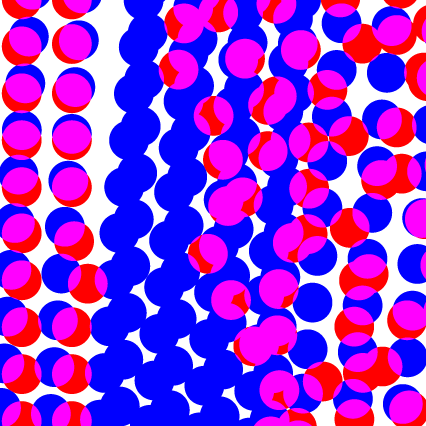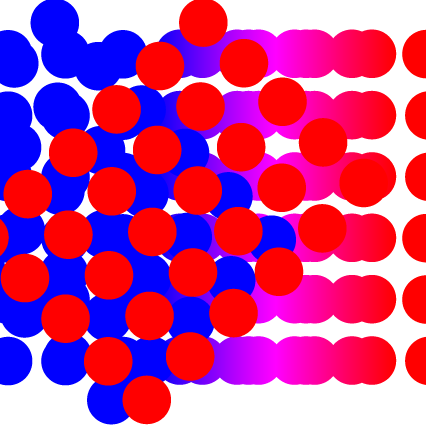Veranstaltungen
-
 ESF Conference „Territory, Tension & Taboo“
ESF Conference „Territory, Tension & Taboo“21st Conference of the Emerging Scholars Forum of the Association for Canadian Studies in German-Speaking Countries! Territory as a historical, legal, geographical, or cultural concept has become an essential interdisciplinary nexus within the field of…
weiterlesen
-
 Was ist „Osteuropa“? Geschichte und Gegenwart eines widersprüchlichen Konzepts
Was ist „Osteuropa“? Geschichte und Gegenwart eines widersprüchlichen KonzeptsSeit der totalen Invasion der russischen Armee in der Ukraine ist der Begriff „Osteuropa“ allgegenwärtig – ob in Social-Media-Posts oder Feuilletontexten: Alle reden über „Osteuropa“. Aber was bedeutet „Osteuropa“ eigentlich? Wer gehört dazu und wer…
weiterlesen
Vergangene Termine
-
 Unsicherheit im Herzen der Herstellungspraxen naturalisierter Ordnungen – Race und trans* als fundierende Kategorien in der Sexualhormonforschung
Unsicherheit im Herzen der Herstellungspraxen naturalisierter Ordnungen – Race und trans* als fundierende Kategorien in der SexualhormonforschungPanel 5: Uncertainty of a ‚Natural‘ Order. (Queer) Feminist Uncertainties/Certainties at the Congress Politische Theorie in Zeiten der Unisicherheit, U Bremen 2023.
-
 Political Theory in Times of Uncertainty
Political Theory in Times of UncertaintyPolitische Theorie in Zeiten der Ungewissheit
-
 „Das muss eine Demokratin aushalten können“: Eine Problematisierung des Aushalten-Könnens im Dialog mit feministischen Perspektiven auf Sorge/Care
„Das muss eine Demokratin aushalten können“: Eine Problematisierung des Aushalten-Könnens im Dialog mit feministischen Perspektiven auf Sorge/CareVortrag im Rahmen der Dreiländertagung Politikwissenschaft „Zeitenwende – Politik(Wissenschaft) in unsicheren Zeiten“
-
 The Truth of Politics. On the Epistemization of the Protests against the German Corona Policy
The Truth of Politics. On the Epistemization of the Protests against the German Corona PolicyThe diagnosis of an epistemization of the political, according to which political questions in Western democracies would increasingly be negotiated as questions of knowledge, is confirmed also in the debate about the state imposed measures…
weiterlesen
-
 Ethnografie als Methode (in) der Rechtswissenschaft
Ethnografie als Methode (in) der RechtswissenschaftDie 63. Junge Tagung Öffentliches Recht 2023 findet vom 18. bis 21. Juli 2023 zu dem 63. Junge Tagung Öffentliches Recht zum Thema Interaktionen: Internationalität, Intra- und Interdisziplinarität in Hamburg statt.
-
 Vollversammlung und Semesterausklang
Vollversammlung und Semesterausklang
-
 Constitution and/or Declaration – Discussing the Question of the (Linguistic) Construction of Contradictions
Constitution and/or Declaration – Discussing the Question of the (Linguistic) Construction of ContradictionsIn this Lunchbox we want to discuss what it means to consider contradictions a product of declaration. In order to make clear the history and theoretical assumption of this concept, we want to give a…
weiterlesen
-
 Afrospanish Literature. Between Activism and Creating References
Afrospanish Literature. Between Activism and Creating ReferencesIm Rahmen des 3. Wuppertaler Malala Day 2023.
-
 Performing and Withstanding Contradictions or: an Uneasy Hunch
Performing and Withstanding Contradictions or: an Uneasy HunchCarolin Zieringer (GRK Contradiction Studies) Kommentare Dr. Rosine Kelz (U Bremen) Dr. Brigitte Bargetz (U Kiel)
-
 No Contradiction: True and Effective Knowledge
No Contradiction: True and Effective KnowledgeProf. Frieder Vogelmann (U Freiburg)